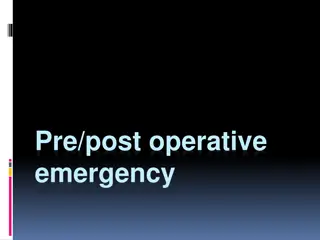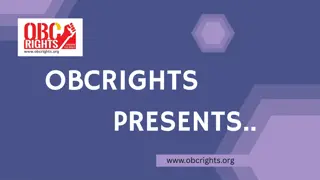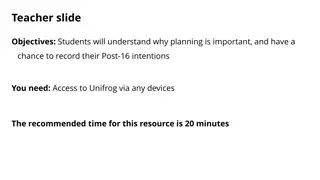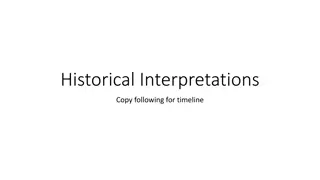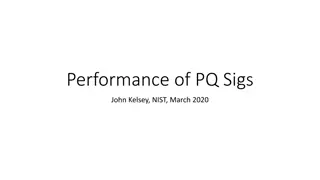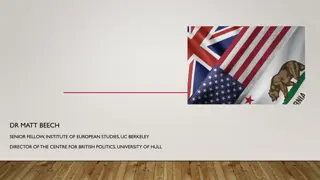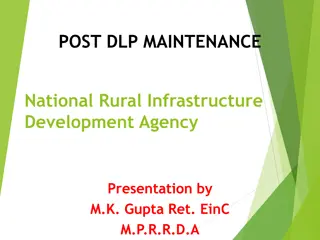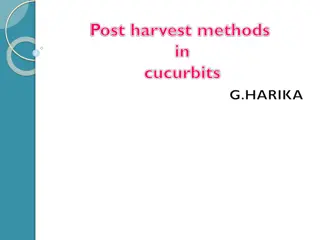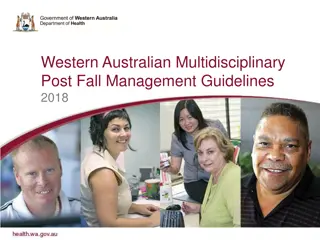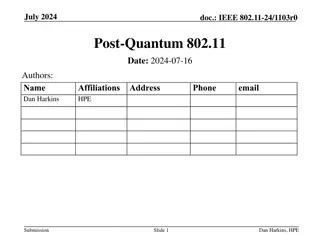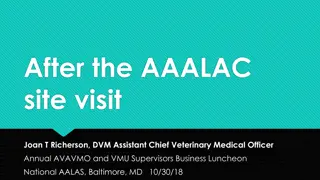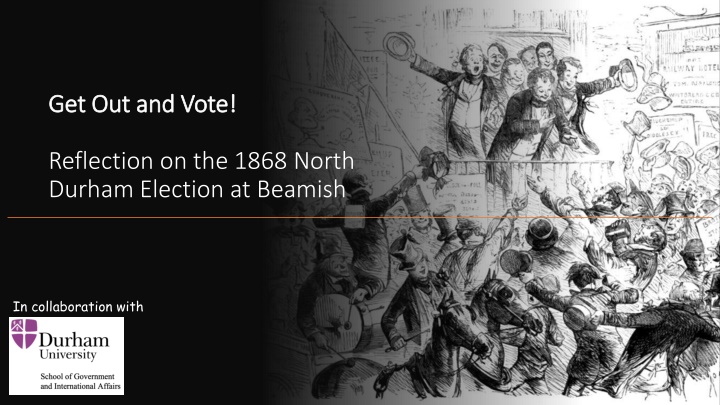
1868 North Durham Election Reflection: Beamish Experience
Reflect on the tumultuous 1868 North Durham election at Beamish where violence and riotous behavior marred the electoral process. Explore the oddities, fairness concerns, and needed improvements for democracy at the time.
Download Presentation

Please find below an Image/Link to download the presentation.
The content on the website is provided AS IS for your information and personal use only. It may not be sold, licensed, or shared on other websites without obtaining consent from the author. If you encounter any issues during the download, it is possible that the publisher has removed the file from their server.
You are allowed to download the files provided on this website for personal or commercial use, subject to the condition that they are used lawfully. All files are the property of their respective owners.
The content on the website is provided AS IS for your information and personal use only. It may not be sold, licensed, or shared on other websites without obtaining consent from the author.
E N D
Presentation Transcript
Get Out and Vote! Get Out and Vote! Reflection on the 1868 North Durham Election at Beamish In collaboration with
Result of the 1868 General Election Disraeli s gamble did not pay off William Gladstone became Prime Minister and formed a government. However, in 1874 Disraeli s Conservatives would go on to win a decisive electoral victory against splintered Liberals.
What Happened in North Durham? The 1868 North Durham Election result: Candidate George Elliot Hedworth Williamson Isaac Lowthian Bell Votes Percent 4,649 4,011 3,822 37.2 32.1 30.6 Total: Registered Electors: 8,566 (est) Turnout: 10,576 81% Although the electorate nearly doubled since the last election, the turnout stayed roughly the same.
It was not a peaceful election On the day of the election there was terrible violence in Durham. Groups of Liberal and Conservative supporters threw paving slabs and stones at each other in the Market Place. On election day in Willington a voter was grabbed by a group of drunken roughs as he waited to catch a train to cast his vote. He was dragged to a pub and made to buy the group of roughs eight gallons of beer. The Newcastle Journal also reported a fight having broken out in Chester-le- Street during polling for the North Durham election This led to the tragic death of one of the Conservative supporters who was struck on the head by a stone. At the trial following this it was claimed that the Liberal Party had paid 100 pounds to buy beer as a treat for their voters.
It was the Most Riotous 19th-Century Election Over 30 full-scale riots involving thousands of people each and over 120 disturbances. There were over 180 minor incidents and 20 individual events reported as well. At least 17 people lost their lives, the youngest victim being a 9 years old boy in Bristol that was hit by a tile thrown from a roof during a disturbance that started during the hustings.
Reflect on the 1868 North Durham Election Experience at Beamish 1. What are some of things you thought were odd or problematic with the 1868 election at Beamish? 2. Was the election free and fair? If not, what made it non-free and unfair? 3. What improvements/changes do you think needed to happen to make elections fairer and better for democracy in the UK at the time?
Democracy in Britain today is one of our most fundamental values. Democracy means that the British people have a say in who rules us and what decisions are made on our behalf, whilst also being protected from unfairness. To work British democracy needs: Checks on the Power of those we elect This is done in many ways including: Having regular elections; having a free press & media; having opposition political parties to hold the government to account in Parliament. Free and Fair Elections Where we vote on an equal basis for who we want to represent us. Individual Rights That no government can remove (even if we didn t vote for them). These include things like the right to life, the right to education and the right to vote. A Fair Legal System Where nobody is above the law (even those in power). This is called the Rule of Law.
To find out more about what nineteenth century elections were like visit Durham Universitys Victorian Election violence website on this topic. Here you will also find an interactive map showing all incidents of election violence during general elections in England and Wales between 1832 and 1914. The project has also produced a series of KS8/9 history and citizenship lessons entitled Understanding Democracy through 19th-Century Elections . There are lessons on both the causes and types of election violence drawing on the interactive map and how elections changed during this time period. There is also an individual lesson to help you explore how democratic Britain is today and investigate ways to improve our democracy and elections now.


